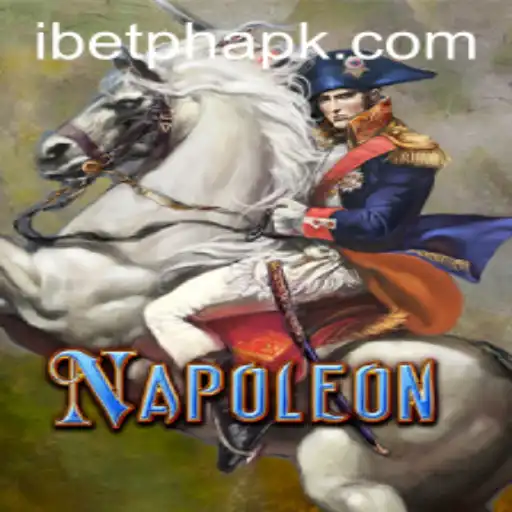
MoneyMinterBonusBuy: Dive into the Exciting World of High-Stakes Gaming
Explore the thrilling features, gameplay mechanics, and strategic rules of MoneyMinterBonusBuy, the latest sensation captivating gamers worldwide.

The card game Napoleon continues to capture the imaginations of enthusiasts worldwide with its unique combination of strategic depth and enjoyable playability. This game, often associated with trick-taking dynamics and complex decision-making, offers players a chance to engage in an intellectually stimulating experience reminiscent of its historical namesake, Napoleon Bonaparte.
Named after the legendary French military leader, the game Napoleon is a trick-taking card game that immerses players in a challenging environment where strategy and foresight are your greatest allies. Typically played with a standard 52-card deck by 3 to 7 players, Napoleon is known for its engaging gameplay that involves bidding and tactical execution. With simple rules that newcomers can quickly learn, this game is anything but simplistic in its strategies.
Amid the current trend towards nostalgic gaming and the revival of classic games, Napoleon has emerged as a popular choice among card game enthusiasts who appreciate the mix of chance and skill involved. The digital landscape's expansion has even seen digital versions of Napoleon finding their way into online gaming communities, further testament to its enduring appeal.
The objective of the game is to win as many tricks as possible. Players aim to become the 'Napoleon' by successfully bidding the highest and then fulfilling their contract by winning an agreed number of tricks.
At the heart of Napoleon lies the bidding phase, where each player declares the number of tricks they believe they can win. The highest bidder assumes the role of 'Napoleon' for that round and must achieve their declared number of tricks to succeed. Failure to do so results in penalties, while success rewards them with points.
The unique twist of Napoleon is the inclusion of a ‘Miseries’ bid, allowing players to claim they will not take any tricks. This bid offers a different strategic dimension, presenting a high-risk, high-reward scenario that can turn the tide of the game.
Cards are dealt clockwise until the deck is exhausted. The dealer then places the remaining cards face down on the table, starting the bidding process. Once a Napoleon is determined, their goal is to strategically play their cards, utilizing the power of trumps or unexpected maneuvers to steer the game in their favor. The tactical aspect of deciding which cards to play and when is where the game's rich strategy shines.
Modern-day players often incorporate current strategies and gaming techniques, borrowing from online resources or variants played in global circles, to outsmart their opponents. This blend of traditional and modern strategies adds layers of depth to Napoleon.
In the current era characterized by fast-paced digital interactions and a plethora of gaming options, Napoleon provides a refreshing contrast with its slower, deliberative pace and reliance on player interaction over digital connectivity. The resurgence of interest in board games during global lockdowns further cemented Napoleon's place as a beloved pastime[^1].
Moreover, competitive events, often streamed online, showcase expert players displaying their skills, further fuelling interest in the game. These modern adaptations and competitions ensure that the legacy of Napoleon endures, attracting new fans and keeping seasoned players engaged.
At its core, Napoleon challenges players to think several moves ahead, much like in a game of chess. Each player must weigh the probability of success against the potential for loss, encouraging a blend of aggressive and defensive play styles depending on the situation. This dynamic interplay between choice and chance makes Napoleon a unique and evergreen strategic endeavor.
Current discussions in the gaming community also explore the integration of Napoleon into educational settings as a tool for teaching strategic thinking and probability management, reflecting the game's potential beyond mere entertainment.
As Napoleon continues to inspire generations of players, its influence permeates across various gaming cultures, showcasing its adaptability and timeless appeal. Whether played in living rooms or virtually across continents, Napoleon remains a testament to the enduring allure of strategy games.

If you're looking for a reliable, fully licensed, and secure sportsbook with a wide selection of games, I betph is the perfect choice. We're committed to providing you with the best online betting experience, with premium quality, excellent service, and continuous innovation. Sign up now and receive ₱777 for free!
Join now
Get the latest information, experience and betting strategies from the expert team at I betph.

Explore the thrilling features, gameplay mechanics, and strategic rules of MoneyMinterBonusBuy, the latest sensation captivating gamers worldwide.

Explore MidasFortune, a captivating game that combines rich storytelling with strategic gameplay, capturing the attention of gamers in today's digital landscape.

Dive into the world of Crowndiamonds, a captivating game of strategy and chance. Learn about its intriguing dynamics, rules, and the unique twist with the keyword 'I betph'.

Dive into the exhilarating world of TheBeltOfChampionBonusBuy, a game that combines strategy and excitement, drawing enthusiasts from around the globe.

Explore the vibrant world of DiscoNight, a game set to enthrall players with its unique gameplay and engaging mechanics.

An in-depth exploration of BlazingWins, an innovative new game capturing the attention of enthusiasts around the world. Explore its unique features, captivating gameplay, and strategic rules that are setting a benchmark in the gaming industry.
 Join now
Join now